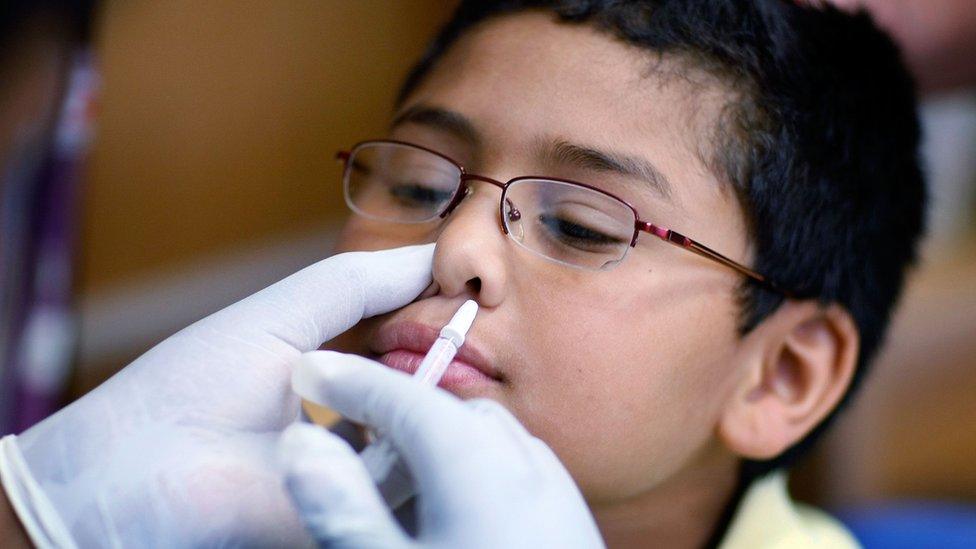Flu-vaccine nasal spray delayed for some schoolchildren
- Published

There will be a delay in some batches of nasal-spray flu vaccine being delivered to schools in England, it has been announced.
Public Health England said some schools would need to reschedule plans for vaccinating children in mid-November.
Affected children in at-risk groups are advised to go to their GP, where they will be given priority to receive the injected vaccine.
This winter, all primary-school-aged children are eligible for vaccine.
The adult flu programme is unaffected by the delay.
AstraZeneca, which supplies the vaccine to the NHS, said it needed "to repeat some tests before a portion of our [Fluenz Tetra] vaccine supply can be released and delivered".
The delay would affect about a quarter of the overall vaccine ordered, Public Health England said, but the problems were not related to the safety or efficacy of the vaccine itself.
Deliveries to some schools in Northern Ireland are also delayed, and likely to be around the UK, because PHE buys and orders vaccine stock for all the devolved nations.
Dr Mary Ramsay, head of immunisation at PHE, said: "We are working with AstraZeneca and NHS England and [NHS] Improvement to ensure that all eligible children get their flu vaccine as soon as possible.
"Children who have underlying medical conditions that make them more vulnerable to flu will be prioritised by GPs first," she said.
The programme for vaccinating children against flu, which typically starts circulating in December and January, began in October.
Reality Check takes a look at the flu vaccine.
Who gets the children's nasal-spray flu vaccine?
It's free on the NHS for:
two- and three-year-olds, at their surgery
all primary schoolchildren, at school or from the GP
two- to 17-year-olds with long-term health conditions, such as diabetes, heart conditions, kidney or liver disease
High-risk children between six months and two years will be offered an injected flu vaccine.
Source: NHS UK, external
- Published22 February 2019
